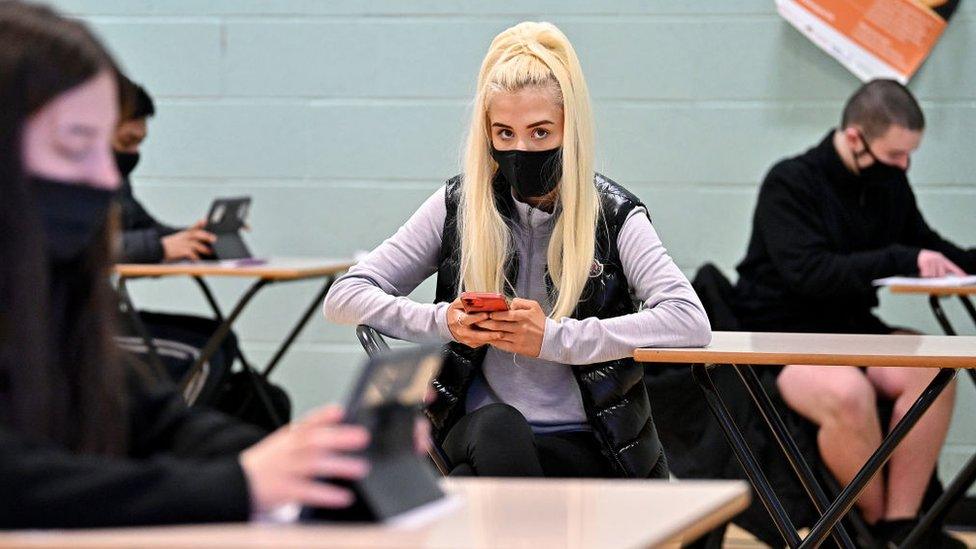Covid in Scotland: Expert predicts end of face coverings in schools
- Published
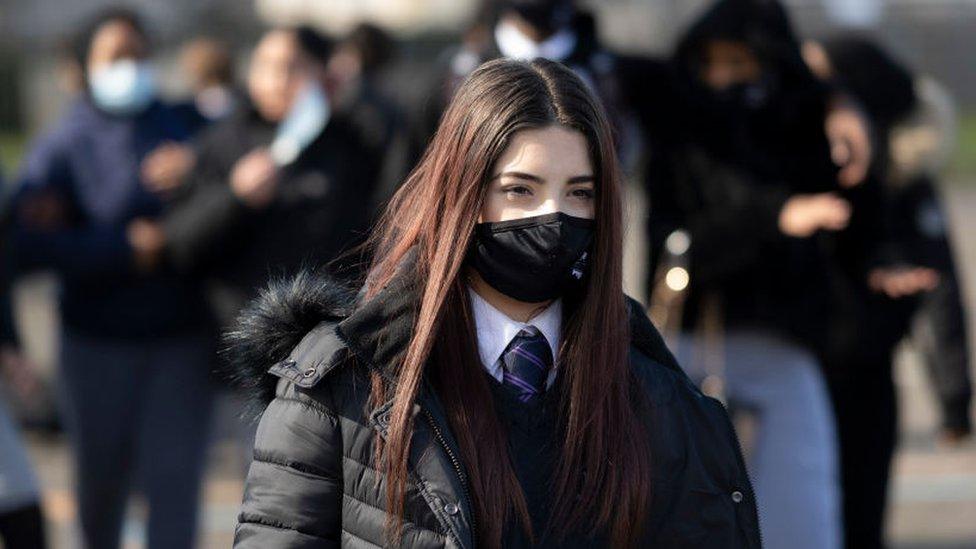
Mask wearing in Scotland's schools could end as early as next month, according to a leading infections expert.
Dr Christine Tait-Burkard said she believed the rules on face coverings for the general public may be lifted "relatively soon thereafter".
Deputy First Minister John Swinney would not be drawn on a timetable.
But he told BBC Scotland's The Nine that he hoped the rules would not still be in place when exams start in May.
On Tuesday, First Minister Nicola Sturgeon told MSPs that Scotland had "turned the corner on the Omicron wave".
She announced that the remaining restrictions which had been introduced in response to the Omicron variant would be removed from Monday, with nightclubs reopening, large indoor events resuming and social distancing rules dropped.
The Covid rules which will remain in place include a requirement for secondary pupils and staff to cover their faces at all times when they are at school.
Dr Tait-Burkard said the latest data was encouraging, despite record-breaking case numbers over the festive period.
'Relatively soon'
She told told BBC Radio's Good Morning Scotland programme that we were seeing "less consequence of disease but also cases dropping despite easing".
The Edinburgh University academic added: "Even with schools returning we actually have not seen an increase in cases.
"I would expect for schools that removal of face masks to be relatively soon, as in early to mid-February, and I'm expecting that actually even for the general public that restriction may be eased relatively soon thereafter."
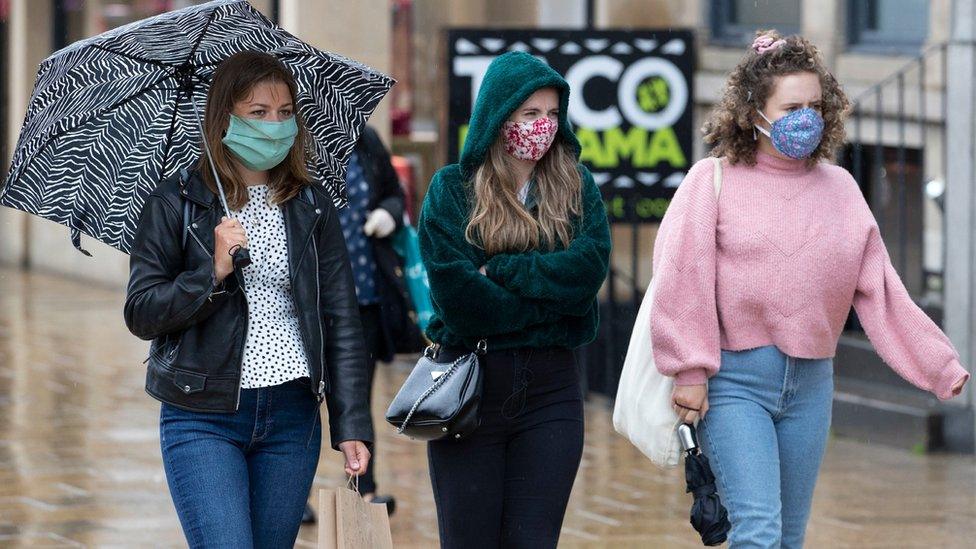
Deputy First Minister John Swinney had struck a more cautious note when he spoke to BBC Scotland's The Nine on Tuesday.
He told the programme: "I think we will be wearing face coverings in general in society for quite a bit longer.
"I think it is one of those straightforward, baseline measures which gives us a degree of protection against the virus, because the virus hasn't somehow disappeared.
"It is still out there and we have got to take elementary steps to try to protect against its circulation, and we will do so, but we won't keep those restrictions in place for a moment longer than necessary."
Asked if pupils sitting their exams in May would be wearing masks, he said: "I would hope that wasn't the case but, obviously, we will review these issues on a regular basis."
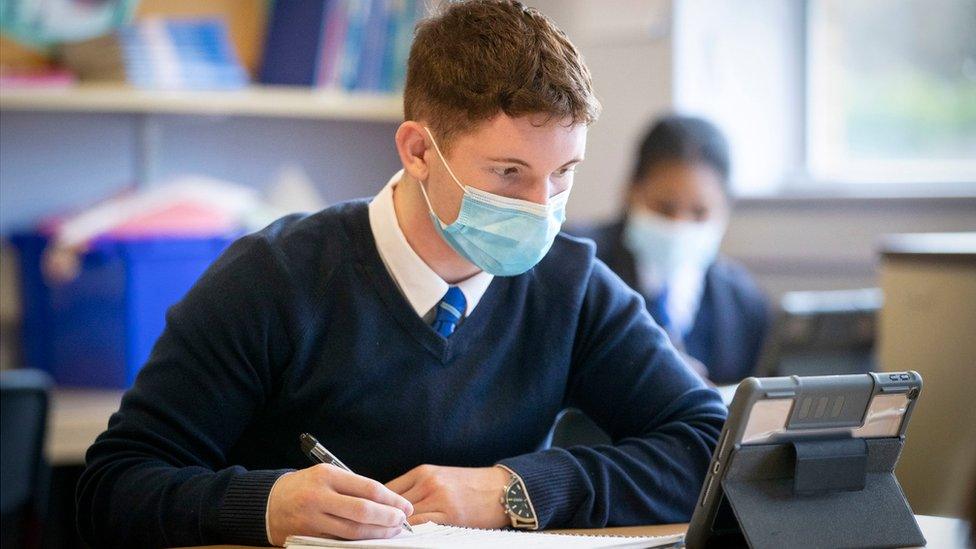
The issue was also raised at a meeting of the Scottish Parliament's education committee on Wednesday.
Margaret Wilson, the chair of the National Parent Forum of Scotland, said her organisation did not support the continued use of face masks in schools.
"I do believe that children are under stricter mitigations than any other area of society, and that is why it's really important that everything is reviewed on a regular basis," she said.
Greg Dempster, general secretary of the Association of Headteachers and Deputes in Scotland, said he felt decisions should be led by the guidance from scientific advisers.
And he added: "I'm not hearing a great deal from pupil representatives or young people about face coverings being a huge barrier."
'Don't drop your guard'
Meanwhile, Scotland's national clinical director, Prof Jason Leitch, has said Omicron is on a "downward slope" but urged caution over thinking the pandemic is in its final stages.
Asked if we are in the "endgame", he told BBC Radio 4's Today programme: "I think we're in the endgame of Omicron.
"Nobody knows if we're in the endgame of the whole pandemic. And anybody who does, I'm afraid it's hope rather than reality."
Prof Leitch said the World Health Organization was still urging people to be cautious and added: "Don't drop your guard for surveillance of other variants that might come into your country or you might generate yourself.
"But we're definitely in a downward slope of Omicron, which is terrific news."
Meanwhile new figures from the National Records of Scotland, external show that in the week from 10 to 16 January, 132 deaths were registered where Covid was mentioned on the death certificate.
This was an increase of 60 deaths from the previous week.


Related topics
- Published18 January 2022

- Published7 January 2022
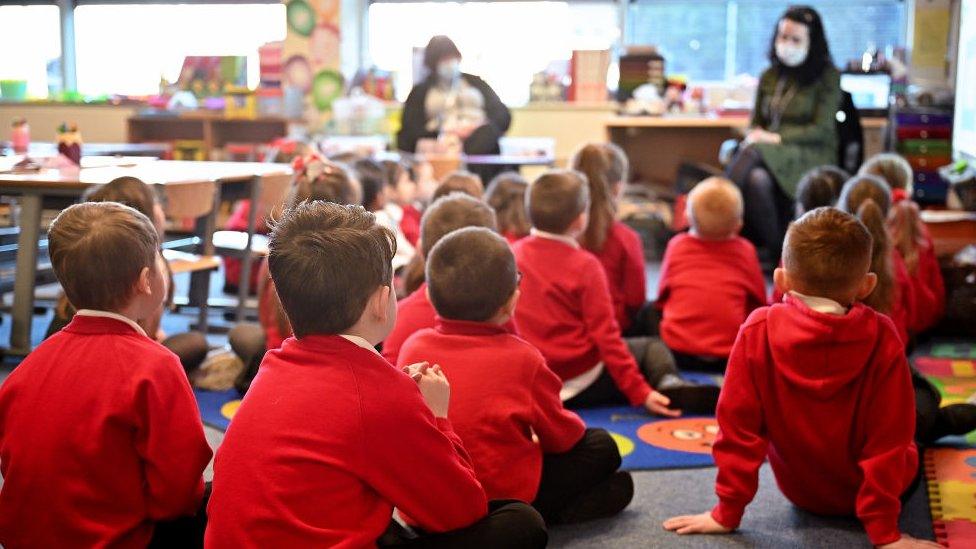
- Published6 January 2022
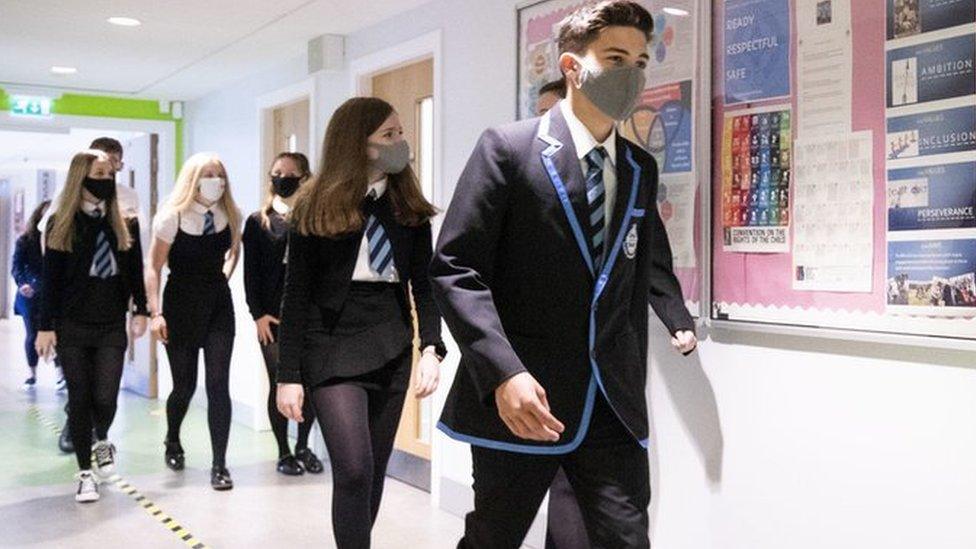
- Published19 October 2021

- Published14 October 2021
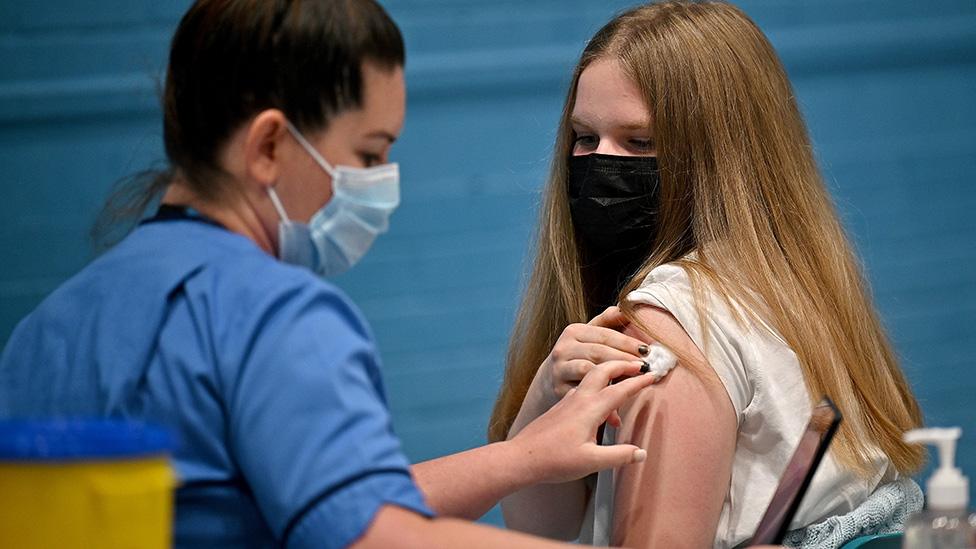
- Published16 August 2021
